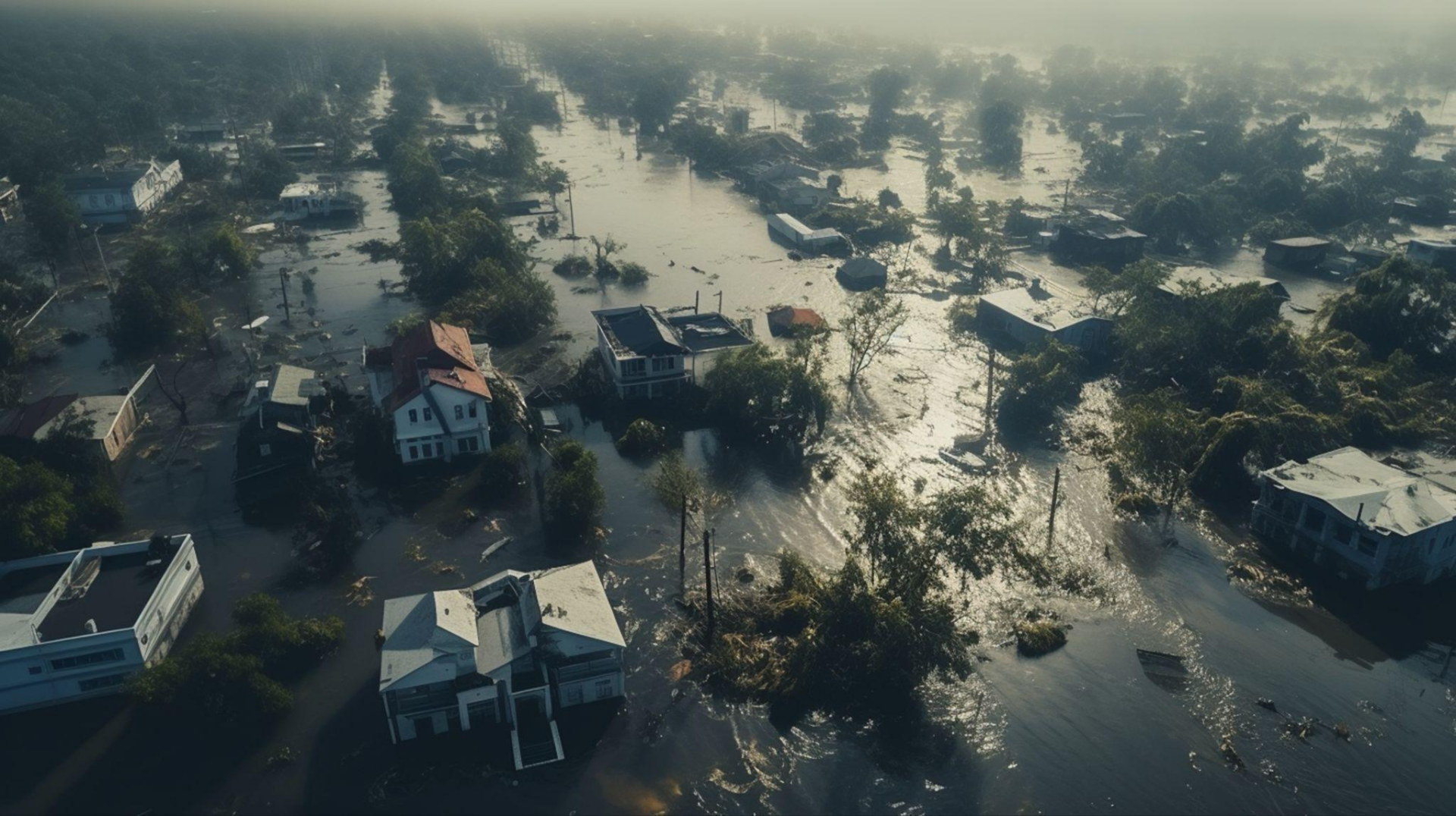How do you Safeguard Your Home and Business During an East Coast Hurricane?

Hurricanes are powerful and destructive storms that can cause significant damage to homes and businesses, especially along the East Coast of the United States. Preparing for a hurricane involves understanding the risks, taking proactive measures, and having a plan in place to protect your property and ensure the safety of your family and employees. This guide covers essential aspects of hurricane readiness, including flood protection, insurance, and storm preparedness kits.
Understanding Hurricanes: Causes and Effects
Hurricanes, also known as tropical cyclones, form over warm ocean waters. They are fueled by the heat and moisture from the ocean’s surface, which leads to the formation of powerful winds and heavy rain. The East Coast is particularly vulnerable due to its proximity to the Atlantic Ocean.
Causes of Hurricanes:
- Warm ocean water (at least 80°F).
- High humidity in the lower to middle levels of the atmosphere.
- Low vertical wind shear (changes in wind speed and direction with height).
- A pre-existing weather disturbance.
Effects of Hurricanes:
- High winds: Can cause structural damage to buildings, down power lines, and uproot trees.
- Heavy rainfall: Leads to flooding, which can damage homes, businesses, and infrastructure.
- Storm surge: A rise in sea level that can inundate coastal areas.
- Tornadoes: Often spawned by hurricanes, causing additional damage.
Hurricane Precautions and Extreme Weather Preparedness
- Storm Preparedness Kit: Assemble a comprehensive storm preparedness kit well in advance. This should include:
- Non-perishable food and water (at least a three-day supply).
- Flashlights, batteries, and portable chargers.
- First-aid kit and necessary medications.
- Important documents (insurance policies, identification, etc.) in a waterproof container.
- Cash, as ATMs and card readers may not be operational.
- Emergency contact information.
- Tools and supplies for securing your property.
- Flood Protection and Prevention: Flooding is one of the most common and devastating effects of hurricanes. To protect your home and business:
- Elevate critical utilities (water heaters, electrical panels, etc.) above potential flood levels.
- Install sump pumps with battery backup.
- Use sandbags or flood barriers to redirect water away from your property.
- Seal walls in basements with waterproofing compounds.
- Flood Insurance: Standard homeowners and business insurance policies typically do not cover flood damage. It is essential to purchase separate flood insurance through the National Flood Insurance Program (NFIP) or private insurers. Review your policy to ensure adequate coverage and understand the terms and limitations.
How to Prevent Hurricane Damage
- Secure the Exterior:
- Trim trees and shrubs to minimize the risk of branches becoming projectiles.
- Secure loose items (outdoor furniture, garbage cans) that can be picked up by the wind.
- Reinforce garage doors and entry doors to withstand high winds.
- Roof Protection:
- Inspect and repair any loose shingles or tiles.
- Install hurricane straps or clips to secure the roof to the structure of the house.
- Consider a secondary water barrier beneath the roof covering for added protection.
- Backup Power:
- Invest in a generator to ensure critical systems (like refrigeration and medical devices) remain operational during power outages.
- Hurricane Shutters for Manufactured Homes: Manufactured homes are particularly vulnerable to high winds and flying debris. Installing hurricane shutters can provide essential protection:
- Accordion shutters: Easy to use and provide strong protection.
- Bahama shutters: Hinged at the top and can be propped open for shade when not in use.
- Roll-down shutters: Offer convenience and high security, though they can be more expensive.
- Storm panels: Cost-effective but require more effort to install and remove.
- Best Window Hurricane Protection: Impact-resistant windows are one of the best investments for hurricane protection. They are designed to withstand high winds and flying debris. The cost of impact windows in Florida varies, but they offer long-term benefits in terms of safety and potential insurance discounts.
What Type of Damages Can a Hurricane Cause?
Hurricanes can cause extensive damage, including:
- Structural damage to buildings and homes.
- Flooding and water damage.
- Loss of personal and business property.
- Damage to infrastructure, including roads, bridges, and utilities.
- Environmental damage, such as beach erosion and loss of wildlife habitats.
- Economic impact from business interruptions and recovery costs.
Conclusion
Safeguarding your home and business during an East Coast hurricane involves thorough preparation and taking proactive measures. By understanding the causes and effects of hurricanes, implementing effective flood protection measures, reinforcing structural integrity, and having a robust emergency plan, you can significantly enhance your resilience against these powerful storms. From assembling a storm preparedness kit to installing hurricane shutters and securing flood insurance, each step plays a crucial role in minimizing damage and ensuring safety. By understanding the risks and investing in protective measures, you can better withstand the impact of these powerful storms and recover more swiftly in their aftermath.
